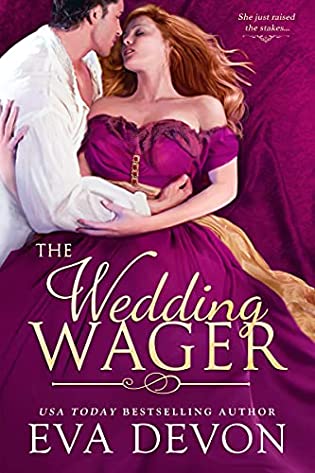 The Wedding Wager by Eva Devon
The Wedding Wager by Eva Devon Format: eARC
Source: supplied by publisher via NetGalley
Formats available: paperback, ebook
Genres: historical fiction, historical romance, regency romance
Pages: 317
Published by Entangled: Amara on October 25, 2021
Purchasing Info: Author's Website, Publisher's Website, Amazon, Barnes & Noble, Kobo
Goodreads
All Lady Victoria Kirby wants is to dig in the dirt, take notations, and record history, thank you very much. Bumbling through ballrooms and getting disdained by the ton for her less than ideal looks, on the other hand, is the last thing she wants. But her reckless father has a different idea for her future when he puts up the ultimate ante—her hand in marriage—and loses. Over her dead body.
The Duke of Chase cannot bear to see a woman misused. After all, he saw that often enough as a child. So when he’s witness to a marquess gambling away his daughter to a lecher of a man, he has no choice but to step in and rescue her. Lady Victoria has a reputation for being as tart as a lemon and as bitter as one, too. So, he may have just found the perfect wife to keep a promise he made to himself long ago--to never have an heir. With her, surely, he'll never be tempted to take her to bed and break that promise.
But when he meets the wild, witty intelligent young lady he’s bound to marry, he knows trouble is headed his way... And everything he ever swore to uphold may very well come undone, especially his heart.
My Review:
Once we get to know the Duke of Chase, it seems as if he’s a bit too good to be true. Even if at the beginning he seems a bit too bad to be trustworthy.
However, I loved Victoria from her very first appearance – as did Chase although he was much less willing to admit that even to himself.
But Chase is absolutely right about Victoria’s father. He is utterly irredeemable. There are no such thing as best intentions when one is wagering one’s daughter’s hand in marriage on a roll of the dice – even if it’s best two out of three and the dice are rigged.
That’s where we meet our hero, and our villain. Not that Victoria’s father turns out to be all that effective – or energetic – in that particular endeavor. The Marquess of Halford is determined to find his bluestocking daughter a husband before she’s permanently on the shelf – even though that’s exactly where his older daughter wants to be.
Victoria is a dedicated archaeologist, who has served as her father’s lead assistant ever since she was a child. She enjoys her work, and indeed pretty much any intellectual pursuits. She also hates the ton and the feeling is very, very mutual. She thought her father understood that, and he certainly encouraged her work.
Until the night he wagers her future, allowing her hand to be won by the scandalous rakehell otherwise known as Derek Kent, the Duke of Chase. A man whose reputation is hard-earned, hard-won, and utterly false.
Chase seems to have more than a bit of “white knight” syndrome, and Victoria is the latest in a long line of damsels he has rescued – generally by helping the world to think that they are not damsels at all.
Victoria doesn’t want the usual lot of high born women, marriage, motherhood and never allowed a thought in her head about anything serious, important or intellectual. Chase is caught on the horns of a dilemma, he needs a wife to keep the predatory mamas of the ton at bay, but he gave his word that he would never father an heir to the dukedom. Marrying Victoria, with her reputation as a plain-faced shrew should solve all of both their problems. He’ll give her the respectability of being his duchess, and the freedom to do whatever she likes. He’ll never desire her enough to bed her, so there will be no danger of an heir.
All’s fair in love and war, and the best laid plans of mice and men often go very far astray. While it’s true that Victoria’s caustic wit and sharp tongue are quite capable of disemboweling a man with a single phrase, she is beautiful. The ton’s narrow definition of beauty simply can’t encompass a woman who is meant to stride through the world like a goddess.
But by the time they’re each past admitting, at least to themselves if not each other, that they both want a marriage in full and not merely a platonic friendship, they’re both so deep in lies and misconceptions that they may not be able to wade across the chasm that they’ve dug between them.
Escape Rating B: The Wedding Wager is deliciously frothy and a quick and utterly lovely read. I liked Victoria so very much as a character, and I loved Chase’s response to her. He does think she’s beautiful, but the attraction between them is as much about her intellect as it is about her appearance. Nor does the story dwell on every detail of her appearance, and I really liked that. It felt like we got way more of the female gaze, Victoria’s appreciation of Chase’s charms, than we did the other way around.
And yet we still got that sense that she is beautiful and that the ton’s rules have become so narrow that they just can’t see it. Victoria doesn’t have to change anything about her physicality to become a “success” with the ton, she just has to own her authentic self.
One of the parts of this story that really sings is Victoria’s forthright nature and her unabashed cultivation and use of her own intellect. She’s smart, she’s thoughtful, she finds the restrictions of the ton unbearably frustrating, finds the entire thing a stupid but stupidly painful farce and does her best to ignore it as much as possible. I particularly enjoyed the scene at the theater where the older woman, Lady Gannet, enjoys Victoria and matches her in intelligence and agreed that the girls of the ton were generally forced to be stupid. Yes, Lady Gannet believed that Victoria’s prime duties as duchess were to take care of her husband and provide him with children, but she also used her brain and missed a time when other women did as well and wasn’t in the least bit shy about saying so.
I loved Victoria and Chase’s intelligent banter, although he seemed a bit too good to be true in his appreciation and support of her goals and ambitions. I wanted him to be, it makes the romance work, but at the same time it felt a bit too easy.
Speaking of easy, Chase’s secrets were too easy to figure out, so I’m glad that he revealed them to Victoria relatively early on. In the end, the conflict between them wasn’t about the secrets, it was about his clinging to the past that created those secrets.
And he gives very good grovel when he finally figures it out.
One final note. Something about the way the story was set up gave me the niggling feeling that this was part of a series. I think it was in the depth of Chase’s friendship with Brookhaven. It felt like there was prior history that was known but not present in this book. That might be true, but this is not – at least so far – part of a series. Howsomever, if it turned out to be, particularly if the next book were about Brookhaven himself, I’d be EXTREMELY interested!


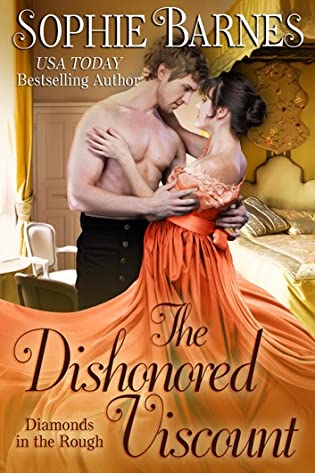 The Dishonored Viscount (Diamonds in the Rough, #8) by
The Dishonored Viscount (Diamonds in the Rough, #8) by 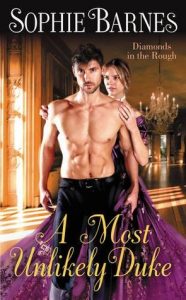 While I haven’t loved any of the series quite as much as I did the very first book,
While I haven’t loved any of the series quite as much as I did the very first book,  That she and Marcus will have to stay in the country – properly chaperoned of course – for an entire month has no bearing on her plans when the scheme takes flight. But by the time her father finds her and returns her to London, her view of the world and her future in it has changed.
That she and Marcus will have to stay in the country – properly chaperoned of course – for an entire month has no bearing on her plans when the scheme takes flight. But by the time her father finds her and returns her to London, her view of the world and her future in it has changed. The men in her life, not so much.
The men in her life, not so much.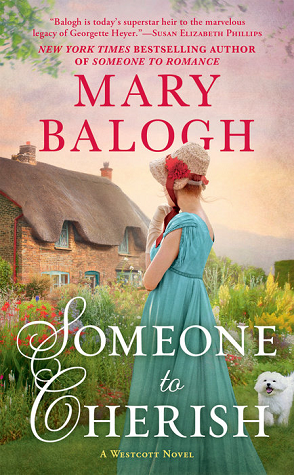 Someone to Cherish (Westcott #8) by
Someone to Cherish (Westcott #8) by  There should be a truly hot place in hell for the late, unlamented Humphrey Westcott, Earl of Riverdale. But, and it is now a huge, 8 marvelous books and counting BUT, the results of his metaphorical bastardy, to whit, the legal and actual bastardy he inflicted on his three children who believed they were legitimate, have been glorious.
There should be a truly hot place in hell for the late, unlamented Humphrey Westcott, Earl of Riverdale. But, and it is now a huge, 8 marvelous books and counting BUT, the results of his metaphorical bastardy, to whit, the legal and actual bastardy he inflicted on his three children who believed they were legitimate, have been glorious.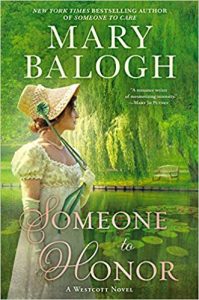 A freedom that she will lose if she trusts herself to another man – no matter how much that man claims to love her. After growing up in an environment designed to keep her childlike, and marrying a man she loved but who dictated her every move and thought, the first person whose judgement she questions is always herself.
A freedom that she will lose if she trusts herself to another man – no matter how much that man claims to love her. After growing up in an environment designed to keep her childlike, and marrying a man she loved but who dictated her every move and thought, the first person whose judgement she questions is always herself.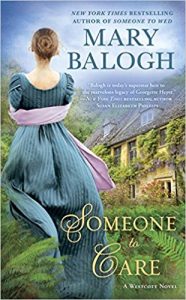 Escape Rating B: This one turned out to be kind of a mixed bag for me as a reader. I got up on that really tall soapbox because there were a lot of elements of the setup that obviously drove me utterly bananas. It has felt like every other book that I’ve read in the last couple of months has been chock-full of families with boundary issues and generally heroines who have trouble saying “NO” and setting and maintaining boundaries with their well-meaning but annoyingly intrusive families.
Escape Rating B: This one turned out to be kind of a mixed bag for me as a reader. I got up on that really tall soapbox because there were a lot of elements of the setup that obviously drove me utterly bananas. It has felt like every other book that I’ve read in the last couple of months has been chock-full of families with boundary issues and generally heroines who have trouble saying “NO” and setting and maintaining boundaries with their well-meaning but annoyingly intrusive families.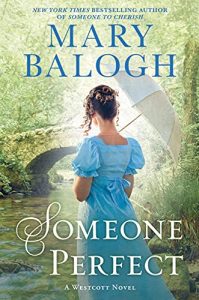 So as much as I’ve enjoyed this series as a whole, the book in the series that this one most reminds me of is
So as much as I’ve enjoyed this series as a whole, the book in the series that this one most reminds me of is 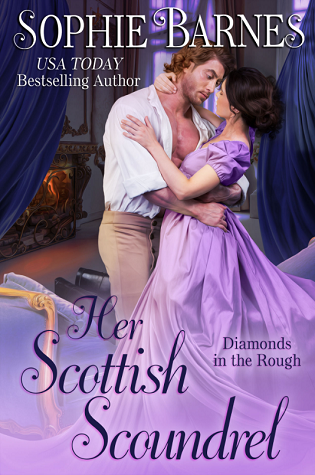 Her Scottish Scoundrel (Diamonds in the Rough, #7) by
Her Scottish Scoundrel (Diamonds in the Rough, #7) by  Where Blayne gets himself in trouble is that he can’t bear to watch that diminishment, no matter how dangerous it makes his own situation. And it IS dangerous. Because he is not what he seems.
Where Blayne gets himself in trouble is that he can’t bear to watch that diminishment, no matter how dangerous it makes his own situation. And it IS dangerous. Because he is not what he seems.

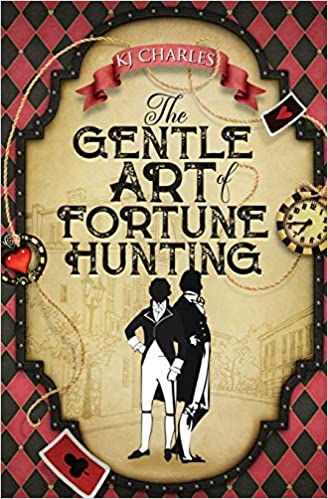 The Gentle Art of Fortune Hunting by
The Gentle Art of Fortune Hunting by 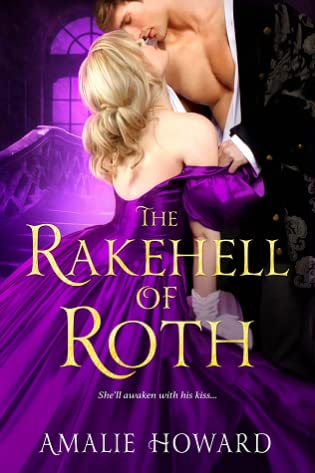 The Rakehell of Roth (Regency Rogues, #2) by
The Rakehell of Roth (Regency Rogues, #2) by 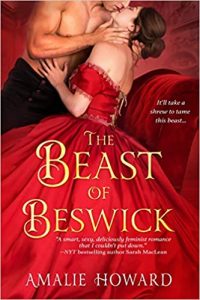 And that the scene where they save each other from thieves, kidnappers and murderers and then screw each other senseless was the only point where I missed having read the first book in the series,
And that the scene where they save each other from thieves, kidnappers and murderers and then screw each other senseless was the only point where I missed having read the first book in the series, 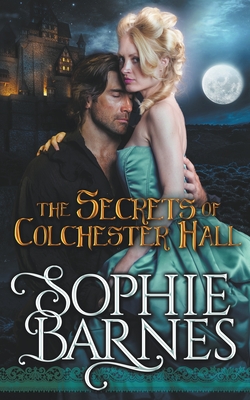 The Secrets Of Colchester Hall by
The Secrets Of Colchester Hall by 
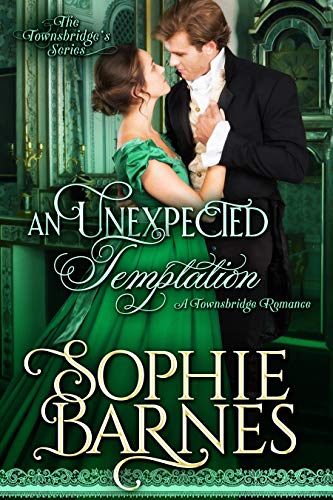 An Unexpected Temptation by
An Unexpected Temptation by 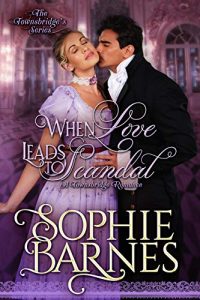 At the very beginning of
At the very beginning of 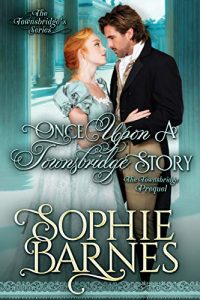 The Townsbridges marry for love. That was true for Margaret and George (their story is in
The Townsbridges marry for love. That was true for Margaret and George (their story is in 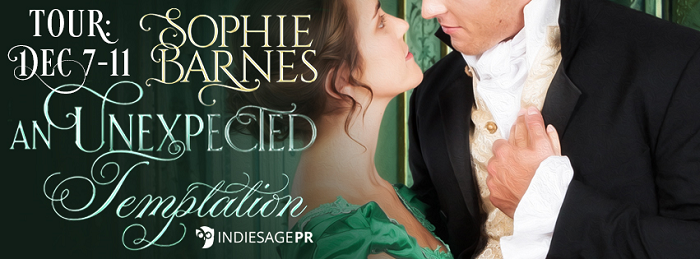
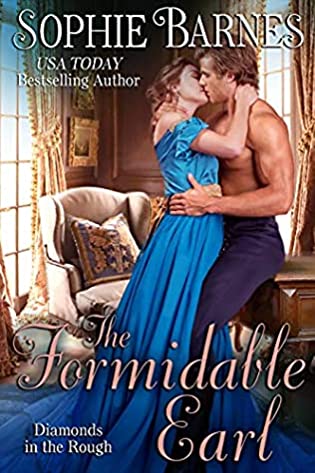 The Formidable Earl (Diamonds in the Rough, #6) by
The Formidable Earl (Diamonds in the Rough, #6) by 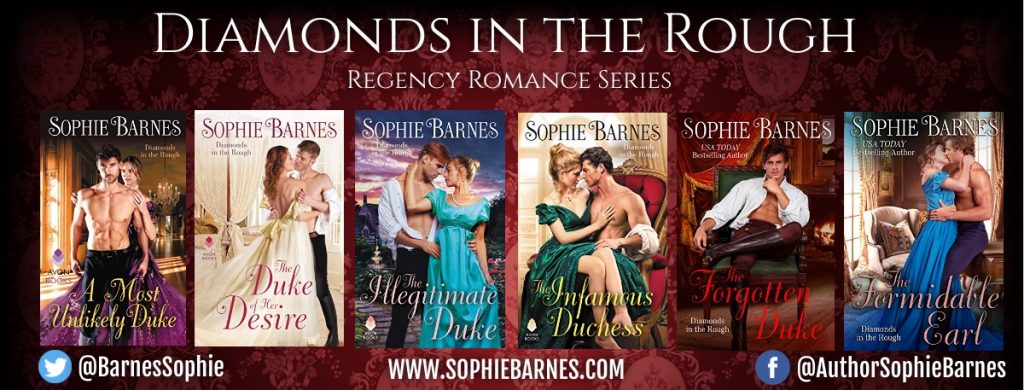
 All of that being said, I really, really liked Ida. She’s a terrific heroine, forthright and proactive with plenty of agency. She was more middle-class to begin with, but society has completely rejected her so she’s pretty much said “to hell with it and the horse it rode in on.”
All of that being said, I really, really liked Ida. She’s a terrific heroine, forthright and proactive with plenty of agency. She was more middle-class to begin with, but society has completely rejected her so she’s pretty much said “to hell with it and the horse it rode in on.”
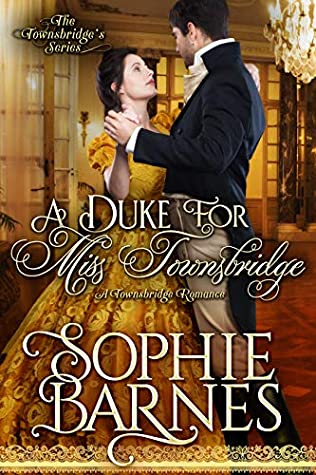 A Duke for Miss Townsbridge by
A Duke for Miss Townsbridge by  He had no intention of loving, or frankly even liking his would-be Duchess. His entire family had been killed in a carriage accident when he was a child. An experience that he has NEVER gotten over. Or past. Or even let the tiniest bit go of.
He had no intention of loving, or frankly even liking his would-be Duchess. His entire family had been killed in a carriage accident when he was a child. An experience that he has NEVER gotten over. Or past. Or even let the tiniest bit go of. It’s also generally something that shouldn’t work, from
It’s also generally something that shouldn’t work, from 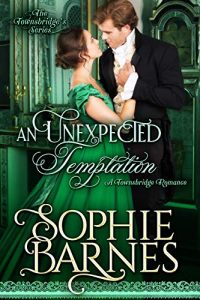 So there’s a romance here, where these people fall in love but only one of them is willing to admit it. And they marry anyway. It’s only after Matthew breaks Sarah’s heart that the healing can begin.
So there’s a romance here, where these people fall in love but only one of them is willing to admit it. And they marry anyway. It’s only after Matthew breaks Sarah’s heart that the healing can begin.